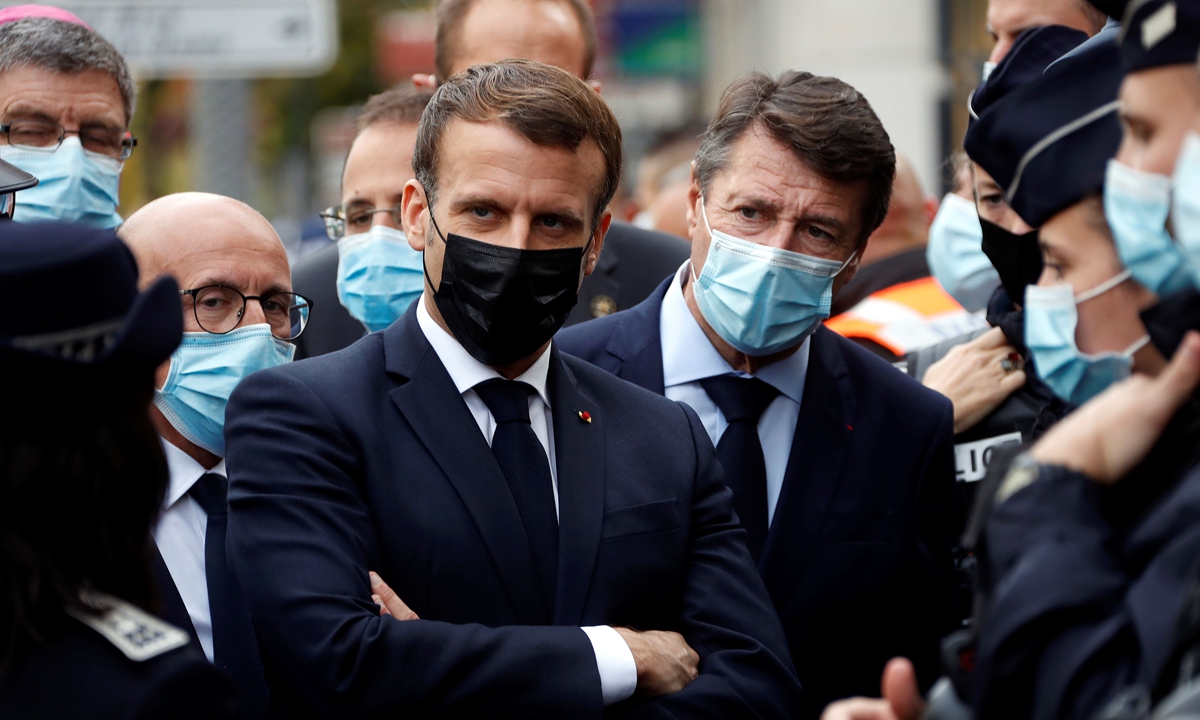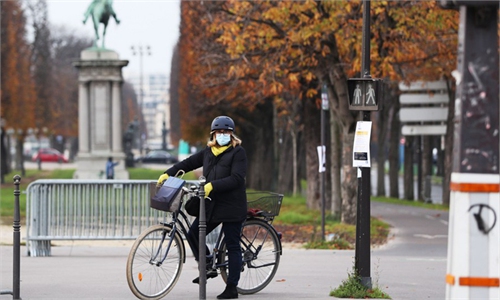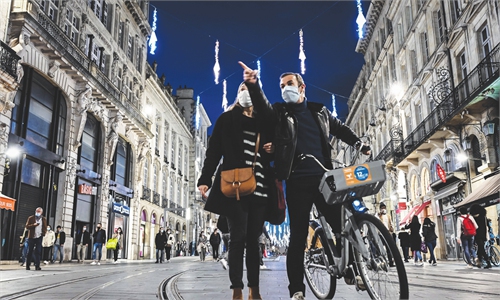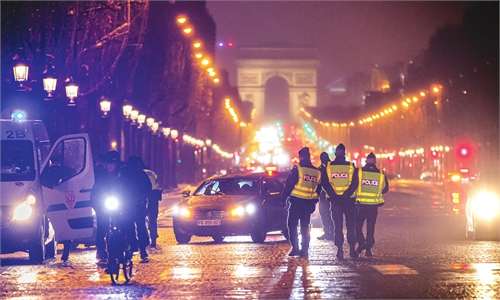Three Muslim groups refused on Wednesday to back an anti-extremism charter pushed by French officials following a spate of jihadist-inspired attacks, dealing a blow to a flagship initiative of President Emmanuel Macron's government.
The charter rejects "instrumentalizing" Islam for political ends and affirms equality between men and women, while denouncing practices such as female circumcisions, forced marriages or "virginity certificates" for brides.

However, the other three groups said on Wednesday they could not join their colleagues. "We believe that certain passages and formulations in the text submitted are likely to weaken the bonds of trust between the Muslims of France and the nation," the three groups said in a statement. "Furthermore, some statements are prejudicial to the honor of Muslims, with an accusatory and marginalizing tone."
Macron had railed against the promotion of "political Islam" in France in November 2020 after a teacher was beheaded outside his school. He had shown pupils cartoons of the prophet Mohammed as part of a free-speech lesson. The attack prompted a crackdown against extremist mosques and Islamist associations.
Macron said Monday that the charter offered "a clarification of how the Muslim community is organized." It will also provide a framework for a new National Council of Imams that will be responsible for vetting imams practicing in the country. The three groups - two of which are Franco-Turkish organizations and the other which describes itself as a teaching and cultural group - said they would be willing to sign up only after a "broad, democratic and participatory consultation."
"In order to adopt this charter, we must recognize ourselves in its content. It would not be useful to sign a text that our community cannot serenely accept," they wrote.
The charter rejects "instrumentalizing" Islam for political ends and affirms equality between men and women, while denouncing practices such as female circumcisions, forced marriages or "virginity certificates" for brides.

French President Emmanuel Macron visits the scene of the knife attack in Nice on October 29, 2020. Photo: VCG
French Council of the Muslim Faith (CFCM), a body set up almost 20 years ago to enable dialogue between the government and the Muslim community, broadly welcomed the charter and five of its eight federations signed on Sunday.However, the other three groups said on Wednesday they could not join their colleagues. "We believe that certain passages and formulations in the text submitted are likely to weaken the bonds of trust between the Muslims of France and the nation," the three groups said in a statement. "Furthermore, some statements are prejudicial to the honor of Muslims, with an accusatory and marginalizing tone."
Macron had railed against the promotion of "political Islam" in France in November 2020 after a teacher was beheaded outside his school. He had shown pupils cartoons of the prophet Mohammed as part of a free-speech lesson. The attack prompted a crackdown against extremist mosques and Islamist associations.
Macron said Monday that the charter offered "a clarification of how the Muslim community is organized." It will also provide a framework for a new National Council of Imams that will be responsible for vetting imams practicing in the country. The three groups - two of which are Franco-Turkish organizations and the other which describes itself as a teaching and cultural group - said they would be willing to sign up only after a "broad, democratic and participatory consultation."
"In order to adopt this charter, we must recognize ourselves in its content. It would not be useful to sign a text that our community cannot serenely accept," they wrote.



